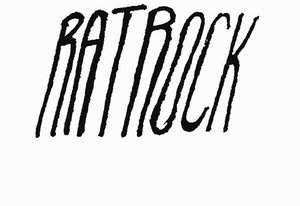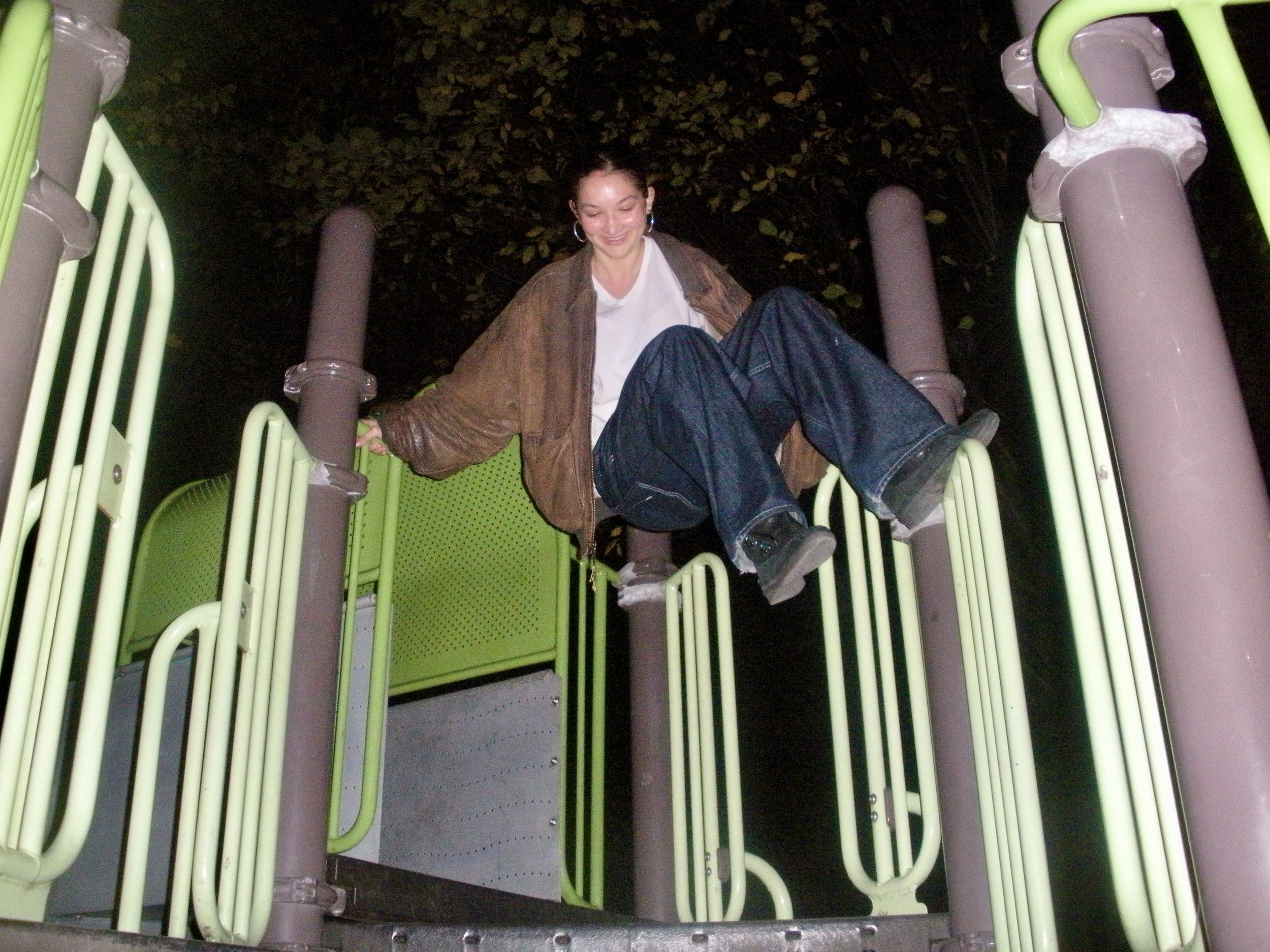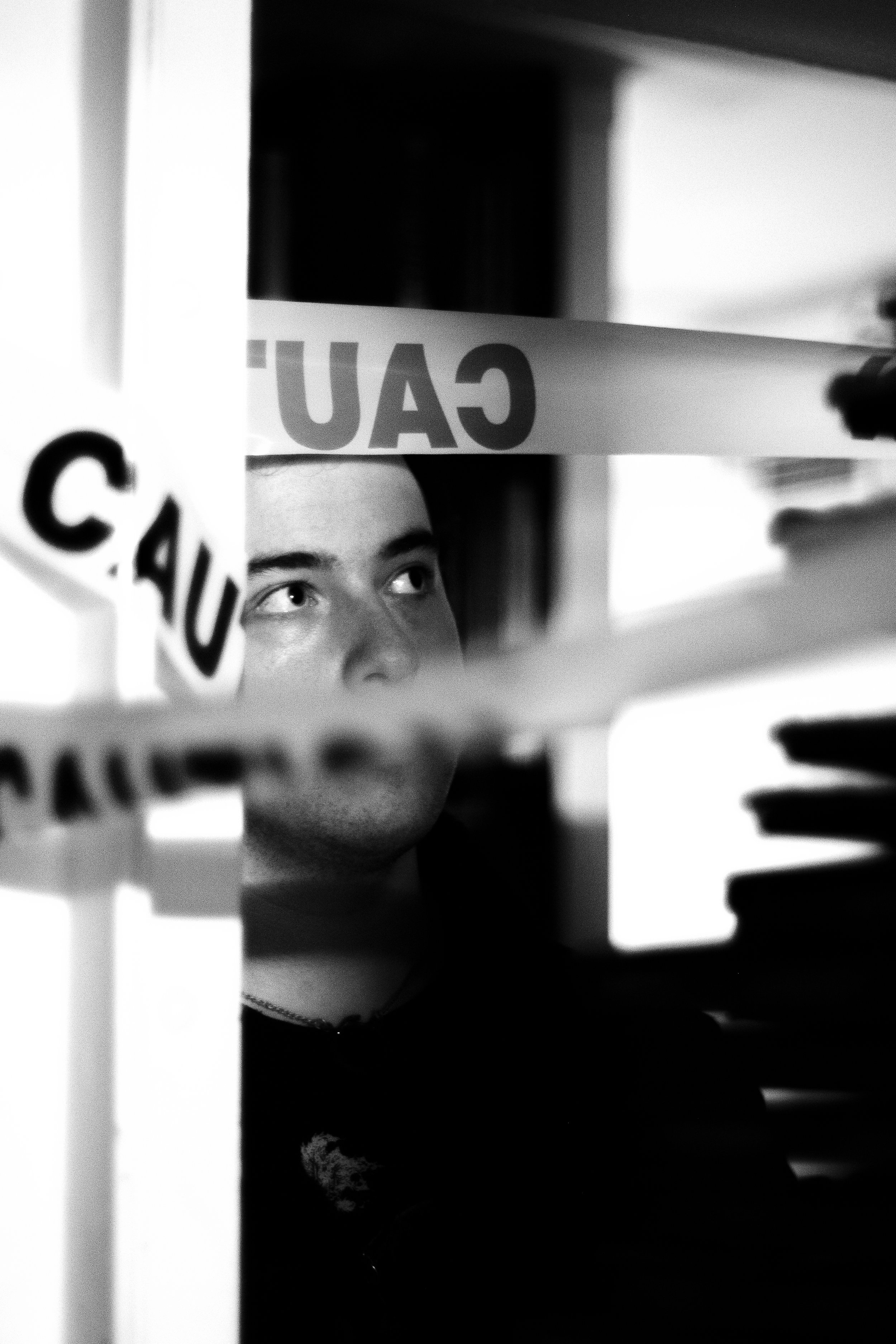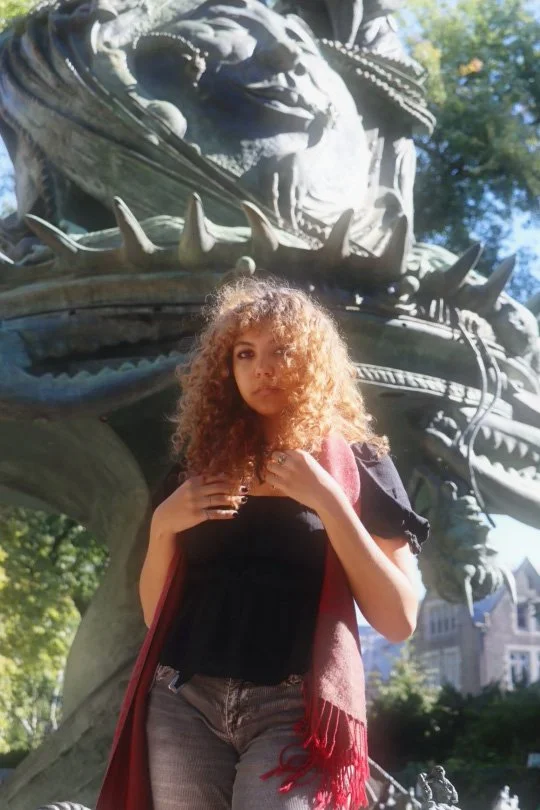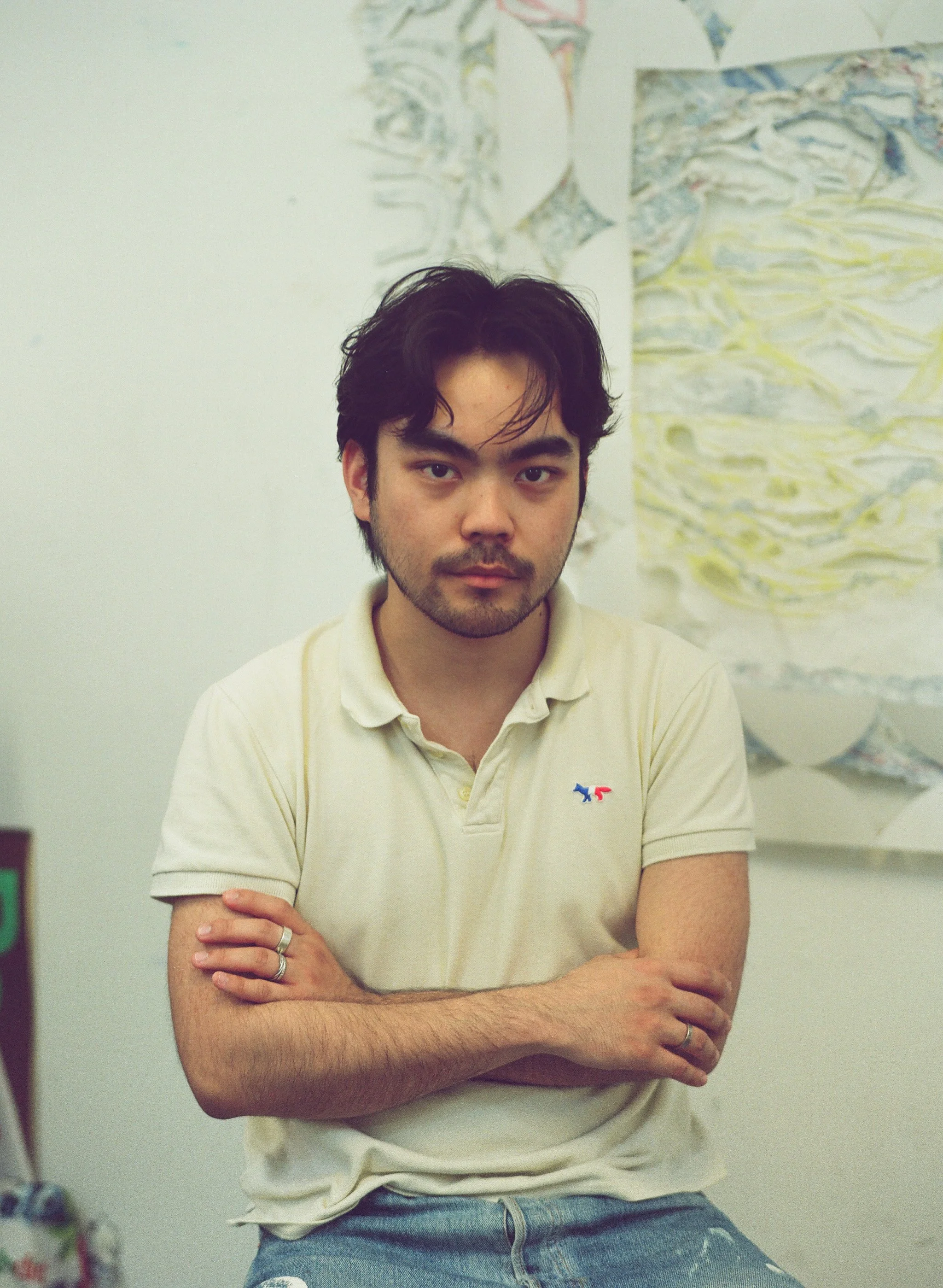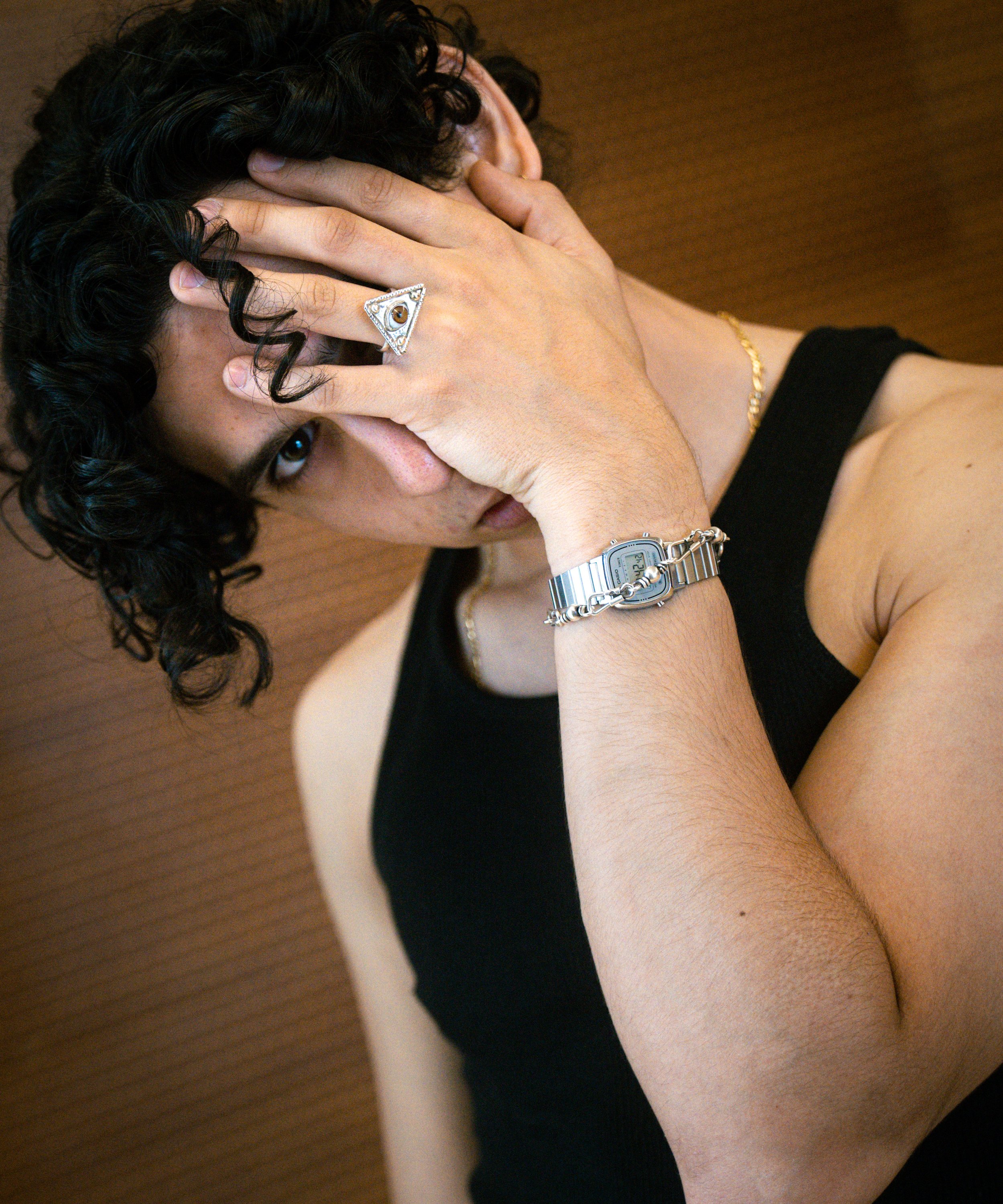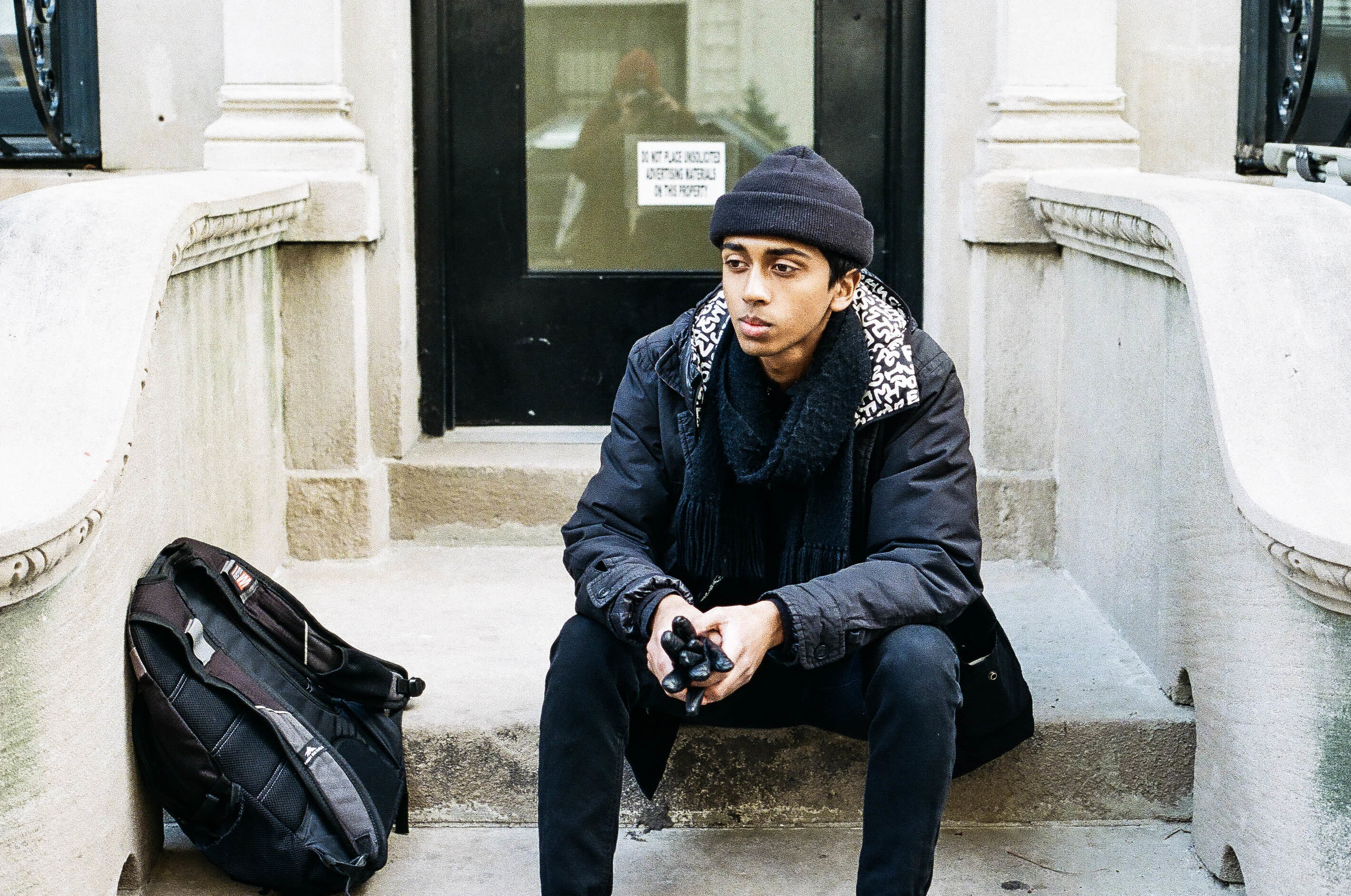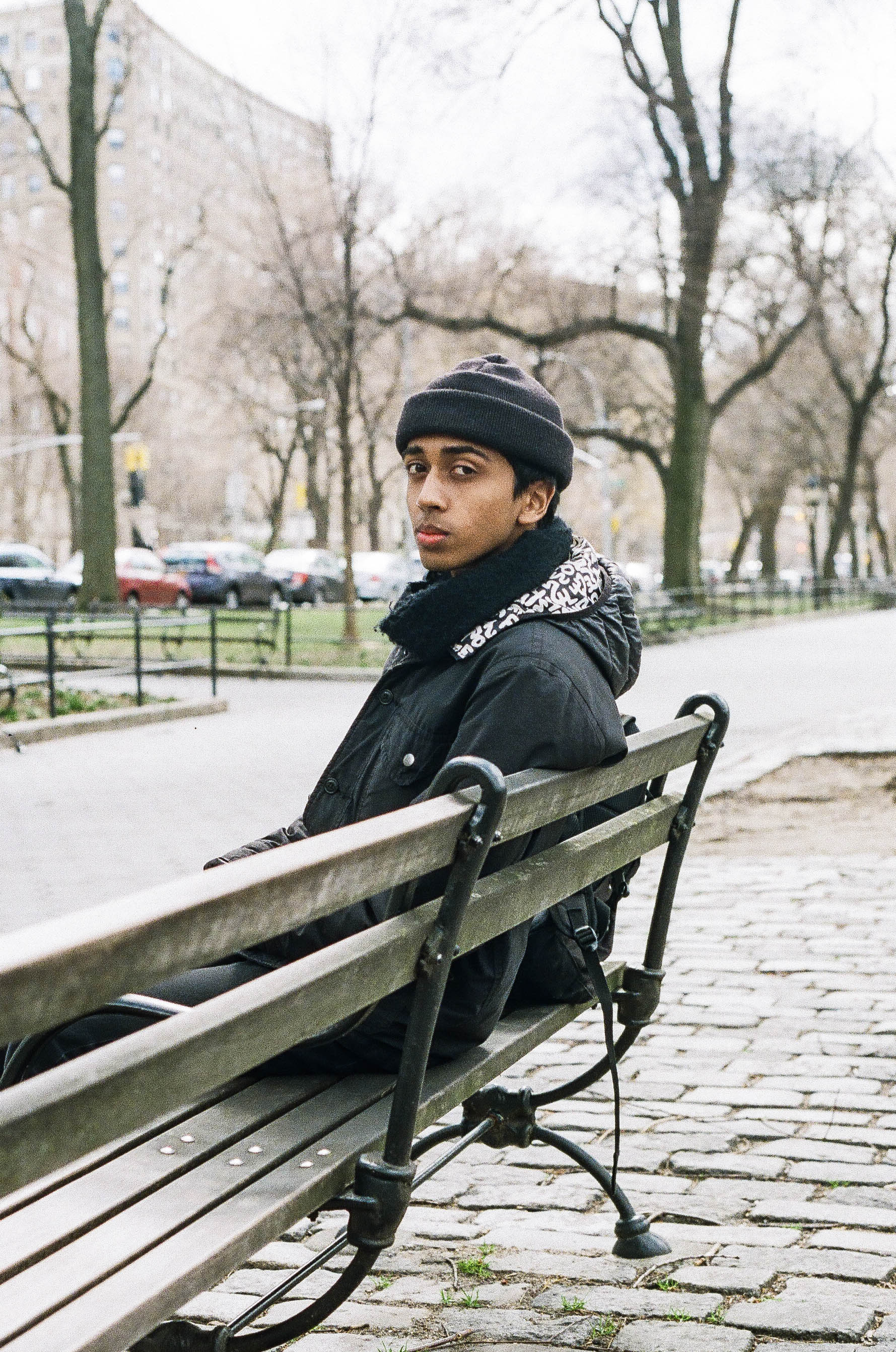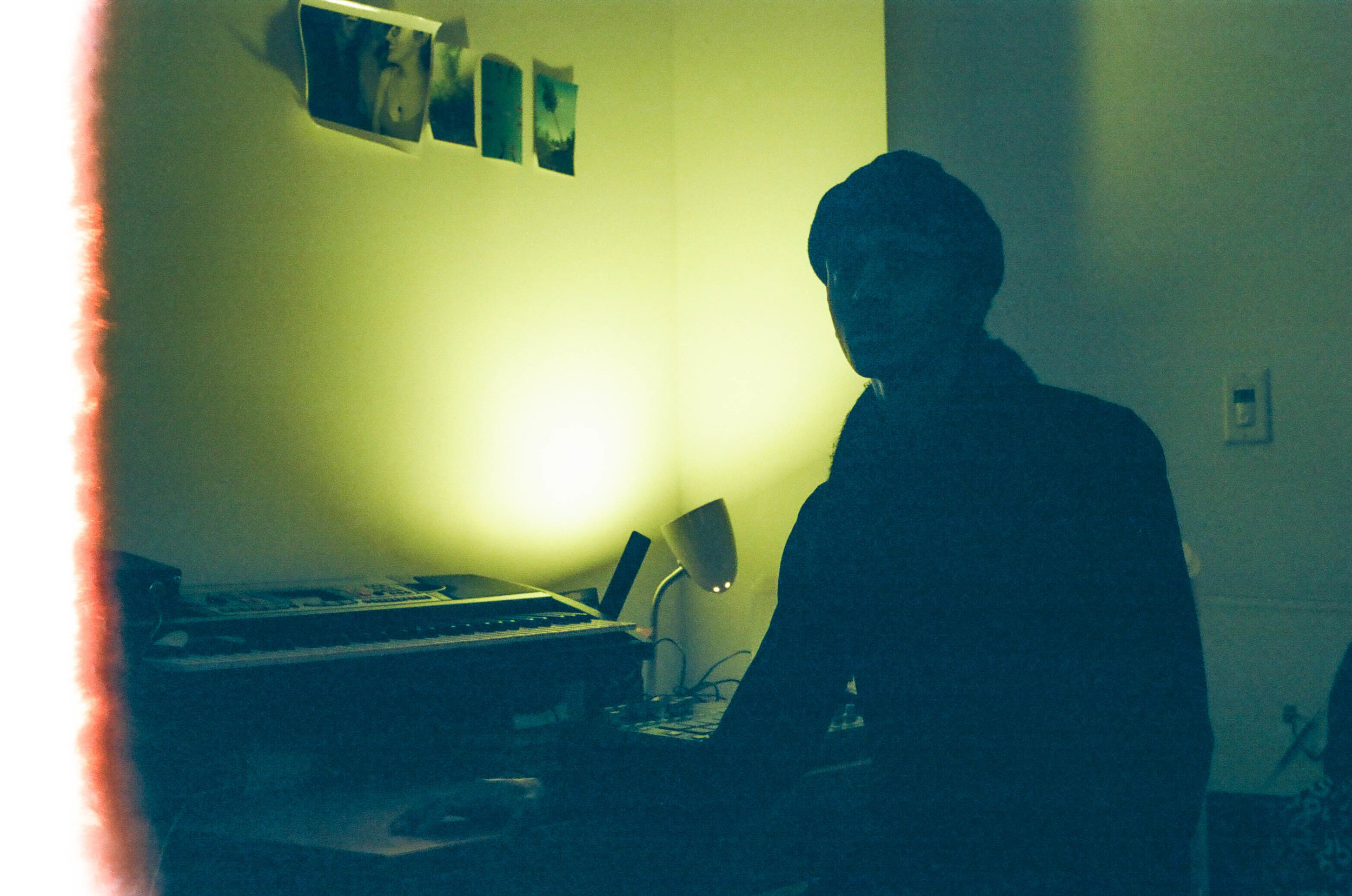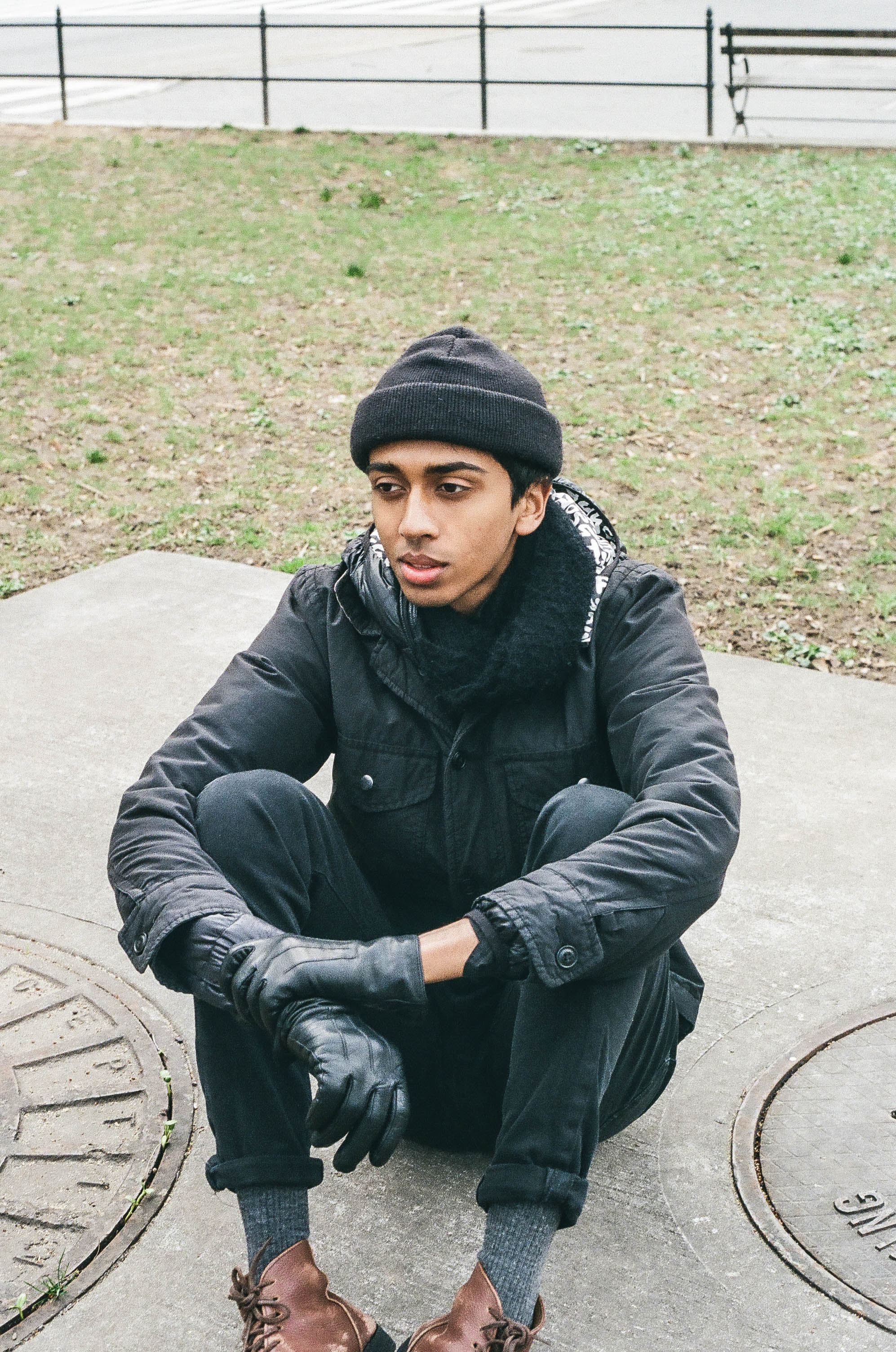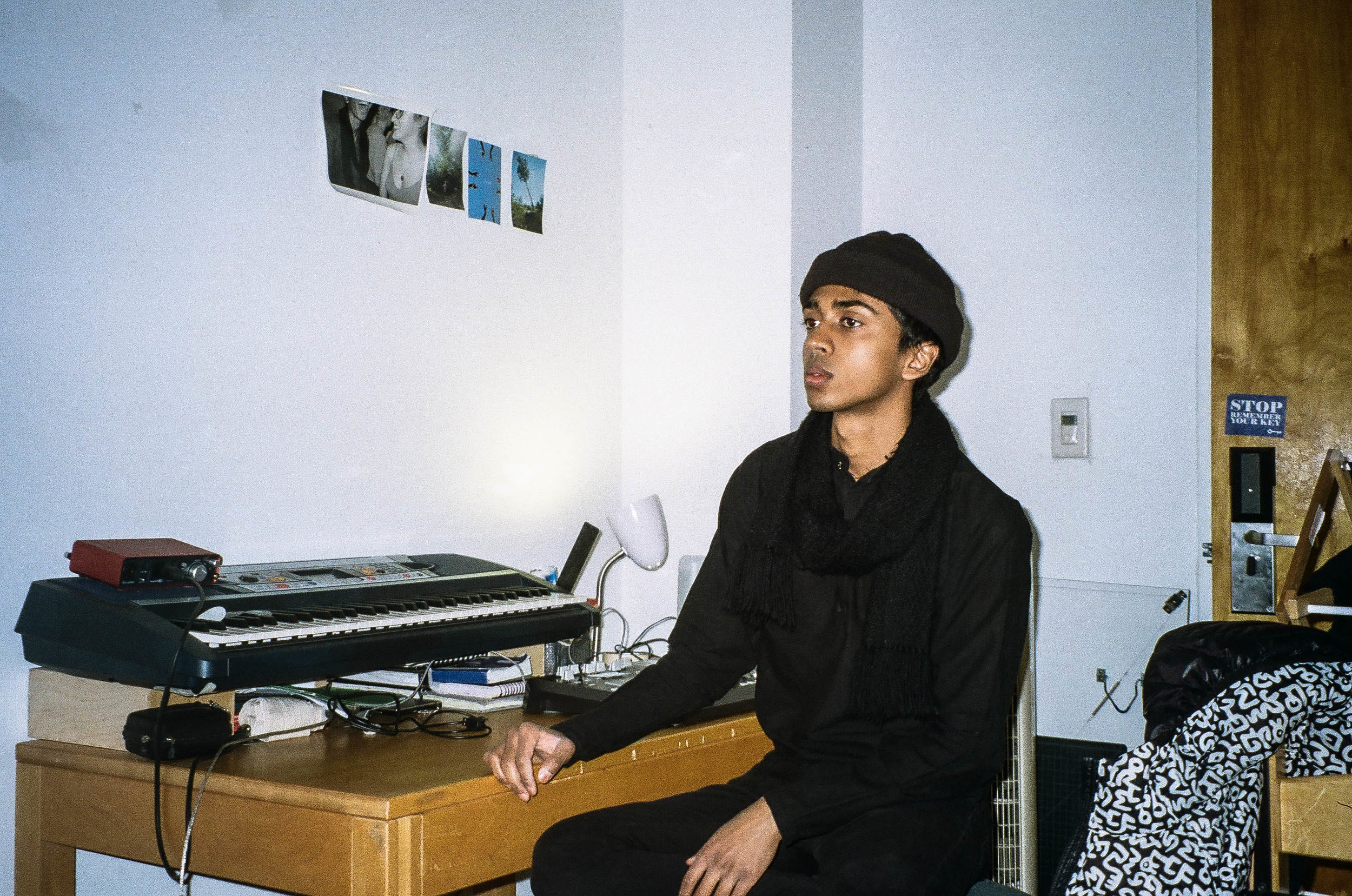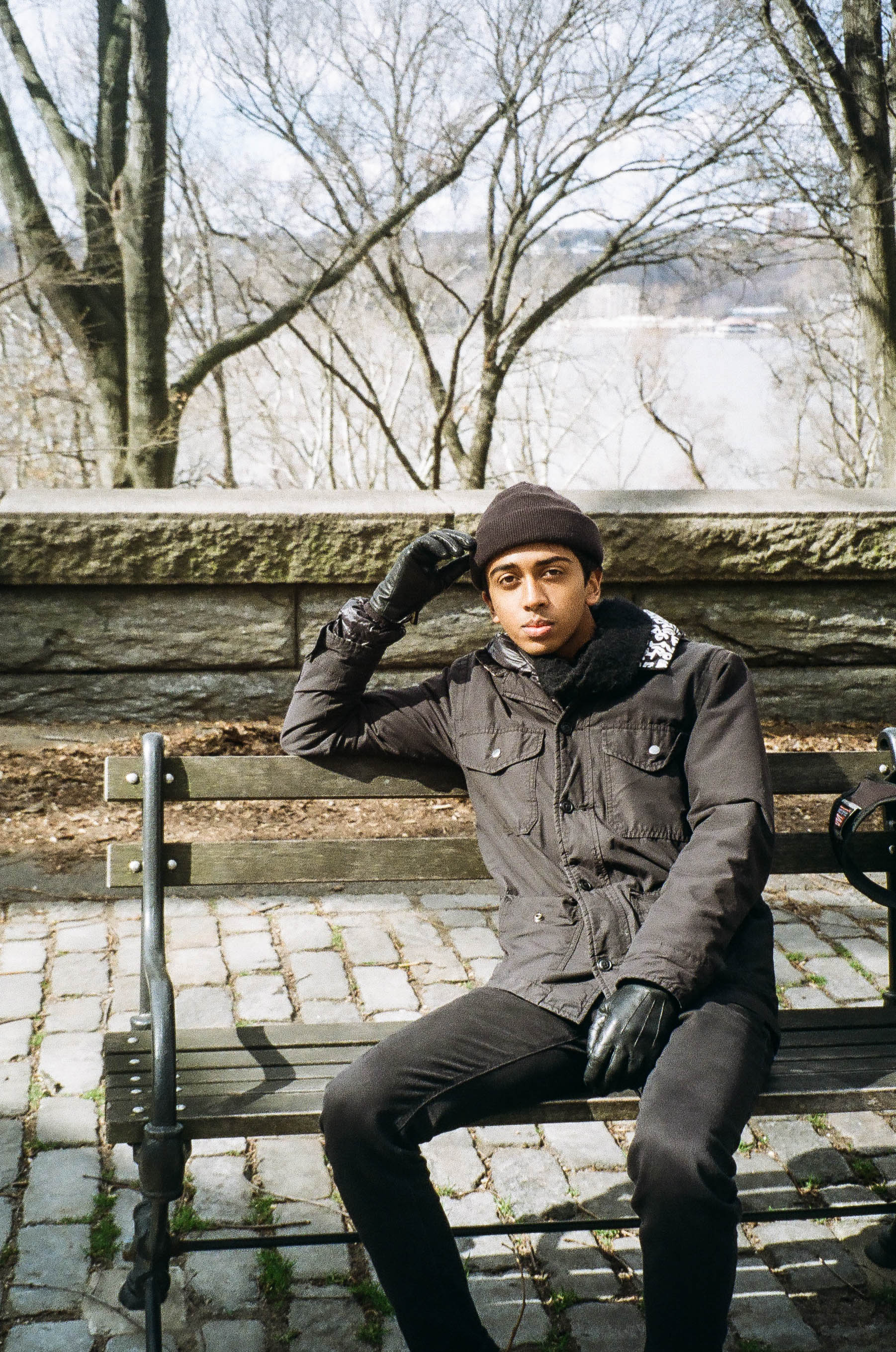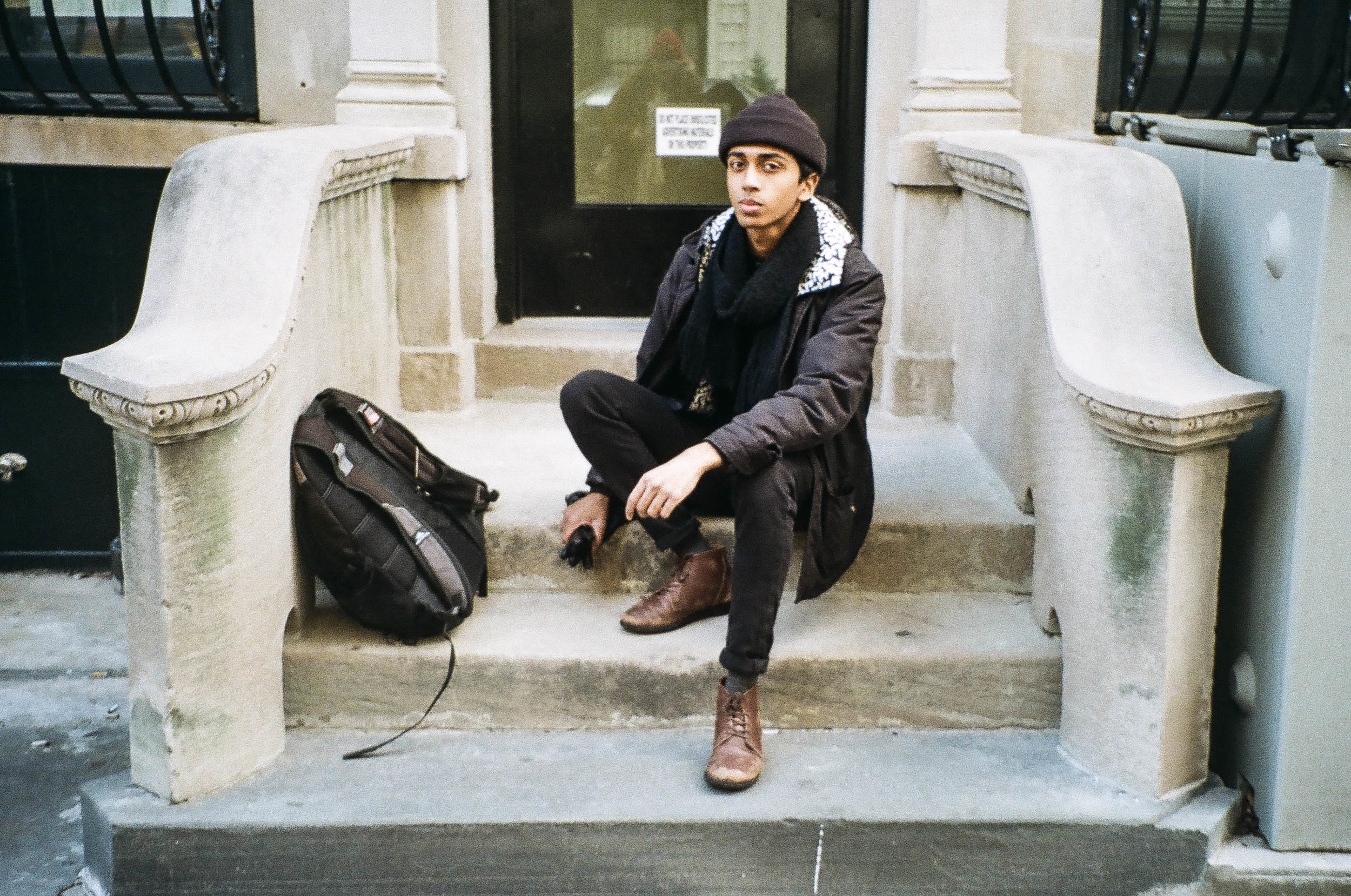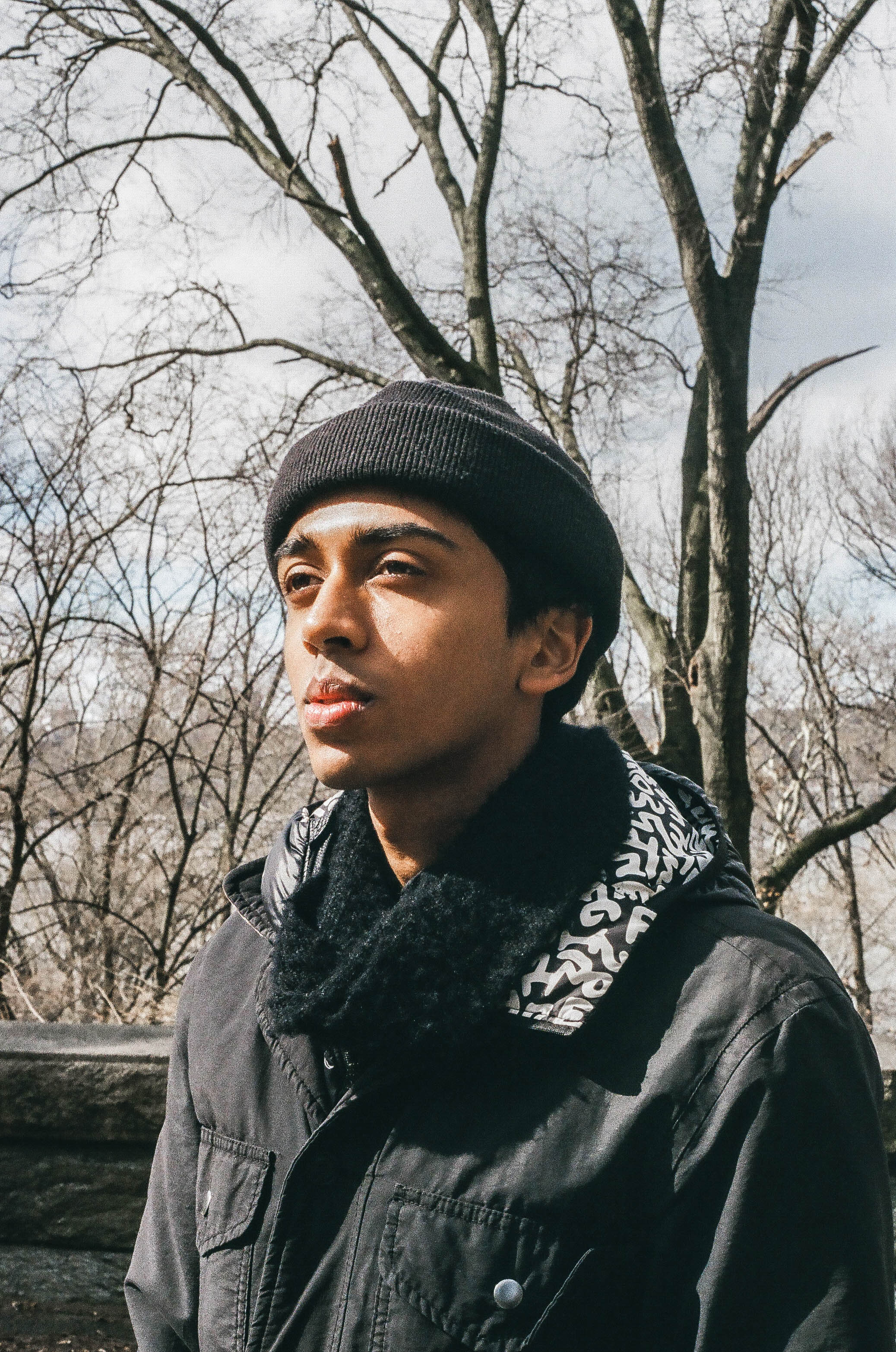Photography by Caroline Wallis
Interviewed by Joelle Milman
When Jeevan and I met in Brownies café, he was wearing all cool colors—navys, greys, darker greens. After he sat, he took out a brushed steel thermos and unscrewed the bottom, which served as a cup for his tea. He sipped from it, slowly, throughout our conversation.
Like his curated set of objects and the slow, considered ways he answers questions, Jeevan is deliberate. Born in Texas, Jeevan grew up in New Jersey, though his voice maintains a sort-of southern drawl. He speaks with slang and intelligence. At Columbia, he studies computer science and spends plenty of time in the Makerspace, laser-cutting skateboards and thinking about design. He sat down with Ratrock last month to talk about his ideal mediums, computers, and a life designed around making things.
Where are you from?
I’m from New Jersey. West County. I was born in Texas and I grew up in Illinois until I was five, so- pretty much I lived in New Jersey.
Were you always into art?
Yeah. I’ve been playing music since I was three. I played violin for thirteen years. I played drums. I’ve been playing trumpet for the last ten. Now I only play trumpet. I did it a lot of visual art in middle school, but I didn’t really know I liked it ‘till my junior year of high school.
What type of music did you play? How did you learn?
I was in a lot of orchestras, jazz programs, basically took private lessons from when I was three until I was eighteen. It was really serious, very much so. I loved it a lot. I still love it. Of all the creative things I do, music is hardest for me. It’s very difficult, but I like it the best. Which I’ve only figured out pretty recently.
What’s hard about it?
I don’t think it really comes that naturally to me. Even writing music- I have a familiarity with it now that I’ve done it for so long. Drawing, painting, making things with my hands – I do it very ad-hoc, I don’t even think about it most of the time. It’s a lot easier to control what I’m doing, figure it out. With music it takes- it’s just straight up harder, is all I’m saying.
How do you go about writing music?
I made the EP last semester. Before that EP I had only ever written or preformed classical or jazz for the past six years before college. I had only ever written acoustic music with a quintet in mind- two horns, bass, drums, piano. So this was really fun for me, really different. I was making all the instruments appear, and thinking about trumpet and voice as other components on top of that. It was learning more intimately how other instruments work.
When you write for a live band, you don’t write out the drum parts: depending on the song you don’t always write out a bass part because the bass player will make one up based on the chords. But I was writing all of that, which was super cool because when you’re writing electronic music you can start at different points and link it all together, make little tiny pieces of it and then build them into one thing.
Writing music isn’t usually like that for you?
It’s not exactly about putting things together. It’s like my visual creative process in that I usually create the thing, a rough image of what I’m trying to do, then keep pushing that, molding it, until it resembles something that I want. The name of the album was Shrubbery and Pointalism but pointillism is spelled wrong on purpose. I‘m kinda into the idea of actual pointillism, that it’s pixilation, resolution, like when you zoom out it’s blurry and you zoom in and it’s blurry- actually with pointillism it’s the opposite. I named it that because that’s it’s how I was thinking about my creative process at that point.
Which is… what?
Which is- refining something. Working. Starting really fast and make something that’s super rough, super general, that lets me see the frame of what I’m trying to accomplish. Sort of like an underpainting. Other people can write a song from beginning to end, but I need the frame of reference.
What inspires your work? Trees, pointillism- where do you get your ideas? Do they just happen?
Well, that EP was super specific with what it was about. I had this idea of walking through a forest and seeing a glowing cube, something that shouldn’t be there. Each song is called ‘below, outside, above, inside. You’re looking at the cube from different points of view. The songs aren’t necessarily about that, but it’s where the idea came from. Which is why I think I was able to do it so quickly: I knew exactly what it was, it made lyric writing a lot easier. I had never really written lyrics before, so having that idea…
Your work covers a ton of ground, from painting to music to 3D Graphics. Is that just random?
Well, my portfolio has a lot of different mediums in it because I’ve done different things in the past couple of years, but I don’t really work with many of them anymore. Most of them (the mediums) I don’t. I painted with oil and watercolor quite a bit in high school, but I haven’t done that in ages. I did a bit of watercolor last year, but I haven’t really been painting for a year. I’m not that interested in it anymore. I like building things, making things. I’ve made some stuff out of wood and cardboard.
So, tactile sculptures?
What else did I make out of cardboard? I made some books over the summer. Notebooks.
Did you make the paper by hand?
No (laughs). That’s ridiculous. Let someone else do that.
I made a skateboard a couple weeks ago.
Have you been using it?
Yeah. It’s pretty fun.
Do you build a lot of the things in your life?
I’m trying to. I don’t have enough time, but I’m trying to make all my stuff, eventually. I really want to not be in school for a month or so so I can do it. Not completely everything, but—
I’m kind of obsessed with this idea of materialism, but not materialism- being obsessed with a very specific selection of objects that are with you all the time. They’re a part of who you are. You love these materials. It’s a very minimal, specific selection of materials, objects.
And they’re different for everyone, a little bit.
Yeah, but they’re kind of a uniform. You need them all the time. For me, this thermos is one of those. I really need it.
Think you could make your own thermos?
Maybe someday (laughs). I don’t think I’m skilled enough to do that.
When did you start working with wood?
A little bit last year. I’m really- I use computers a lot when I work. I’ve never done a woodworking project, like “made a chair”. I use the Makerspace a lot- an open lab in the engineering building. I use the CNC machine and the laser cutter. But the main ones are the computerized tools I use to make stuff. That’s how I made the skateboard. I cut it with a CNC mill and finished it by hand. I’m gonna make more and sell them.
You do 3D graphic stuff too, right? And you’re a CS major? How has that work informed your art practice- did you have those tools before?
Yeah. I started caring about doing creative things because- I went to an engineering high school and had to take CAT classes, so I started doing 3D modeling. We also had a 3D printer, which was super sick in like 2011. 2010. Longest time ago. So I was doing a lot of that on my own since it wasn’t happening in class. I got really into art 3D modeling, so it was quite a bit of character design, digital sculpting, things like that. I was actually adamantly opposed to learning CS for a long time, which was stupid (laughs). I was like, ‘I don’t care, I don’t wanna know about that’. After I graduated (high school) I realized I was pretty interested in it. I took my first CS class at Columbia. I was going to be an architecture major until a few days ago actually.
I always feel like there is some correlation between the worlds of coding and writing, the process of creating something, writing and coding as art.
Absolutely, absolutely. I was thinking about that the other day too, writing a program compared to essay writing. Just code is easier. It’s also- you have to really think about organization, you have to think about your beginning, how you end it. You don’t really think about arguments, but- you’re composing, when you write a program, which is cool too.
That sounds connected to music. It sounds like all that you do is interconnected.
Word. I guess so. It’s all- I think about everything the same way. Which is really helpful in some ways and counterproductive in others.
I think that’s one of the ‘creative people’ things, one of those double-edged swords of thinking creatively.
I fuck with that. I don’t want to be studying CS to be a computer scientist, studying architecture to be an architect. I think it’s all one toolkit that I’m trying to flesh out.
I think college, for me, is building that toolkit to feel that I can do the work I want to do creatively. Specifically what I want to do is temporary architecture, or installations, audio-visual stuff. I kind of just want to organize parties, build spaces for music.
What about the visual art that’s up there? The eye from the security camera, stuff like that?
Those are actually a few years old, but I like them a lot. I actually wanted to make t-shirts out of them, which I did, through one of those e-commerce websites. Kinda lame, but Columbia doesn’t let you use the print studio unless you are in a printing class, so.
Those designs are also part of a general obsession with technology. Technology has produced my most intense love hate relationship.
Can you tell me more about that?
Sure. Everything I want to do relies on computers. I really love making things that are made possible by my computer. The things that I am able to output using a computer I really love. But I also hate that I spend, like, 12 hours a day on my laptop. And that I basically can’t go anywhere without my laptop because I need it to do everything. Yeah. It’s kind of counter to what I think is good in life. Fun. Farm produce, human interactions. Wood and cotton and glass as opposed to…
Do you have a particular medium that you most often turn to? Or is it always in conversation?
Medium. I think for now, for making things, it’s wood and cotton. Yeah. I think that there are only five materials that are worthwhile: wood, cotton, steel, glass, paper. Yeah. That’s the ones.
What about what’s inside a computer?
Right. So you can’t – I am- I’m realizing that I unfortunately can’t get to that point (where I only work with wood, cotton, steel, glass, paper). Which is kind of sad. It’s mostly an effort to villainize plastic as the worst thing ever.
Do you think that politics or larger ideas influence your life and art? Or is it just the object?
No, definitely. A lot of the drawings I made, mostly about surveillance, which is something I’m still very interested in and fighting against. Environmental activism is really important to me- the whole plastic thing is about that. This obsession with design for people to have a small selection of objects is about that: consume, but consume on a small scale. Consume long-lasting things that are actually important to you.
Would you consider yourself an activist?
Yeah, I think so. Yeah, definitely. That question is hard for the same reason that ‘do you consider yourself an artist’ is hard. I think it has a lot of gravity of ‘do you really put your money where your mouth is’ kinda deal. But, also, activism is similar to art in that it’s not one thing. Activism is not only protesting- that’s not true because protesting isn’t even one thing. Activism is not just vocally gathering and chanting with signs. Direct action is great, but it’s not the only activism. It’s also trying to be aware and up to date as you can be, and to always have conversations with people and calling people out when they say something you don’t agree with. Being confrontational in a way in which you’re not fighting, but trying to educate and learn, and have other people learn, and stuff like that.
I think being an activist means caring about things, to be honest.
And here’s this question: Do you consider yourself an artist?
No. I thought about this a couple weeks ago. Well… yeah.
On the Ratrock page, I didn’t say ‘visual artist’, I said ‘designer’. I think it’s easier to call myself a designer. ‘artist’ has a lot of weight. I like the intentionality of calling yourself a designer.
(pause) Let me just find the words…
Calling yourself an artist is chill and great for a lot of people, obviously. For me, using the word designer is less pressure.
What does being a designer mean? To you? And literally, what it encompasses?
It incorporates the concept of function. For a while, I didn’t fuck with that, so maybe I won’t fuck with it in a while. I actually don’t see that happening. I’m really interested in highly- functional but very beautiful things.
That’s a good ethos. Anything else you feel like sharing, any upcoming works? Andglowing cube in a forest ideas?
What have I been thinking about… I think what’s been on my mind mostly is the uniform. Making all your own clothes. Everything you own being made yourself or traded with other people. I think that we should all- well, not we all- but I think it’s really sick to limit yourself in certain ways. Your uniform doesn’t need to all be the same thing. You don’t need to wear the same thing every day, but instead of wearing thirty clothes, you have 10. So you repeat things a lot, and it’s predictable. I think that’s interesting. Not school uniform- definitely not everyone should wear the same thing. That would suck. But I want to wear the same thing every day.
Me and my friend met this professional knitter on the subway last night. He’s a student at parson but he also ‘knits freelance’. High brands employ him to knit shit for for them. He makes his own stuff and sells it on commission, so like. He makes sweaters and shit for all these people. It was cool.
Also: a moneyless and plasticless world. That’s what I’ve been dreaming about lately.
